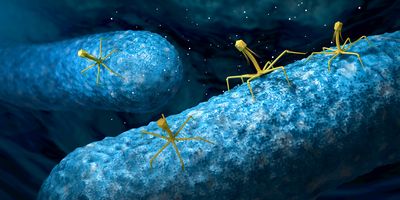Could your bathroom be humanity’s arsenal against antibiotic-resistant superbugs? A team of microbiologists just uncovered an "untapped" world of biodiversity hiding in your showerheads and toothbrushes, and it might be the key to our survival. Researchers found more than 600 types of “phage” viruses―most of which have never been seen before―from the samples. A phage, short for bacteriophage, is a type of virus that specifically infects and destroys bacteria, but does not target people.
In recent years, bacteriophage therapy has emerged as a promising alternative for treating infections caused by antibiotic-resistant bacteria. Ongoing research focuses on bacteriophages that can effectively break down bacterial cells, thereby reducing bacterial populations without harming beneficial microbiota. Unlike broad-spectrum antibiotics, which indiscriminately kill both harmful and beneficial bacteria, bacteriophages offer a more targeted approach.
The discovery of these new viruses stemmed from a study led by Erica M. Hartmann, an associate professor of civil and environmental engineering at Northwestern University’s McCormick School of Engineering based in Evanston, Illinois. This quirky research was an offshoot of her previous work, which Hartmann affectionately dubbed “Operation Pottymouth,” where she and her colleagues characterised bacteria living on toothbrushes and showerheads.
Using the same samples from the bacterial study, Hartmann conducted DNA sequencing to examine the viruses present. The results were astonishing. The microbiologists found that there was no overlap in virus types between the showerheads and toothbrushes, indicating that each represented distinct "islands" of viruses.
Hartmann's team identified a greater number of mycobacteriophages compared with other phage types. Mycobacteriophages specifically infect mycobacteria, a pathogenic group responsible for diseases such as leprosy, tuberculosis and chronic lung infections.
While researchers advise against worrying too much about the invisible microorganisms inhabiting our bathrooms, they recommend regularly replacing toothbrush heads. Hartmann is also critical of antimicrobial toothbrushes, which she believes can contribute to the development of antibiotic-resistant bacteria. The team is still working to fully understand the functions of the newly discovered viruses and explore how they can be utilised effectively.


